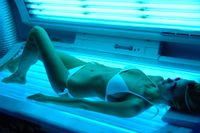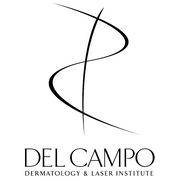
In the summer, bright sunshine and long days can be incredibly inviting—especially if you want a tan. But, trying to get a darker complexion by spending time in the sun can result in various dermatological problems—including skin cancer, sunburn, and sunspots. Fortunately, you don’t have to give up on tanning altogether to keep your skin healthy. Instead, keep these do’s and don’ts in mind as you search for that summer glow.
Do:
Use self-tanning products.
Any type of tanning due to UV exposure is a result of skin damage. However, if you want to maintain a darker complexion, there are many safe self-tanning products you can use. For example, you can visit a salon for a full-body spray tan. There are also many lotions, creams, and sprays that can give you a tan without the risk of wrinkles, sunspots, and skin cancer. To get the best results, always exfoliate before application.
Perform routine skin checks.
While not recommended, it’s still possible to get tan from spending time outdoors—even with proper protection. Since UV exposure is associated with a higher risk of skin cancer, it’s important to check your whole body for noticeable changes in appearance. While many growths—such as moles—may be benign, it’s critical to consult a dermatologist if you spot marks that could be cancerous. These marks include those that are asymmetrical, have an irregular border, bigger than a pencil eraser, unevenly colored, or changing over time.
Don’t:
Use tanning beds.
 While tanning beds are sunless, they still expose the body to extremely harmful concentrations of UV rays. People who use these devices before the age of 35 have a 75 percent higher risk of developing melanoma than those who avoided tanning beds. For this reason, it’s best to skip them altogether.
While tanning beds are sunless, they still expose the body to extremely harmful concentrations of UV rays. People who use these devices before the age of 35 have a 75 percent higher risk of developing melanoma than those who avoided tanning beds. For this reason, it’s best to skip them altogether.
Pass on protection.
Anytime you go outside, you need to protect your skin from sun damage. Ideally, you’ll want to use a broad-spectrum, water-resistant sunscreen that offers an SPF of 30 or higher. Reapply the product as directed if you spend long periods outdoors. To prevent wrinkles, sunspots, and skin cancer risk, you should also stay in the shade, use an umbrella, and wear a wide-brimmed hat along with UV-resistant sunglasses.
Protecting your skin is a simple experience when you’re a patient of Del Campo Dermatology. Based in North Miami, FL, this dermatologist provides full assessments to diagnose unusual changes in your skin’s appearance—including those that might indicate the presence of skin cancer. If necessary, skin cancer treatments are available to help prevent the disease from spreading. This clinic also offers a wide range of cosmetic services that can minimize the appearance of sunspots and wrinkles. To learn more about these capabilities, visit this dermatology center online. If you’d like to schedule an exam, call (305) 705-6675.
About the Business
Have a question? Ask the experts!
Send your question

